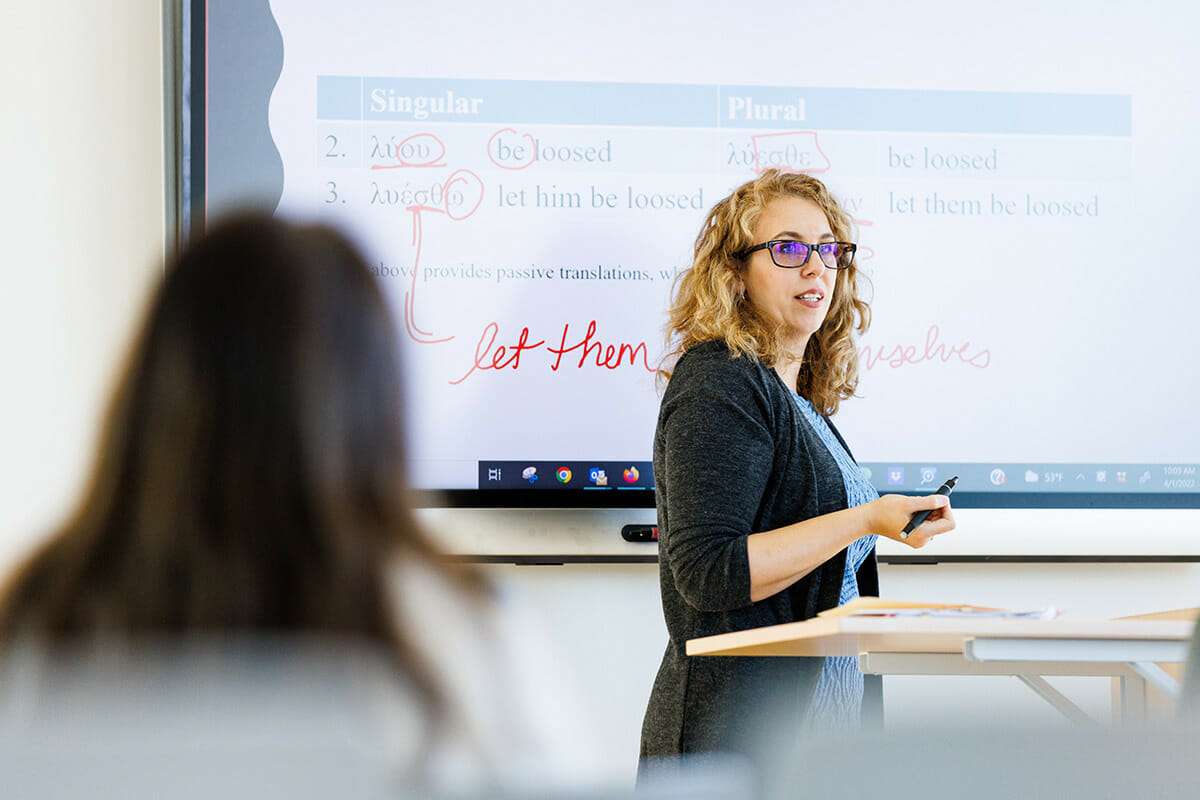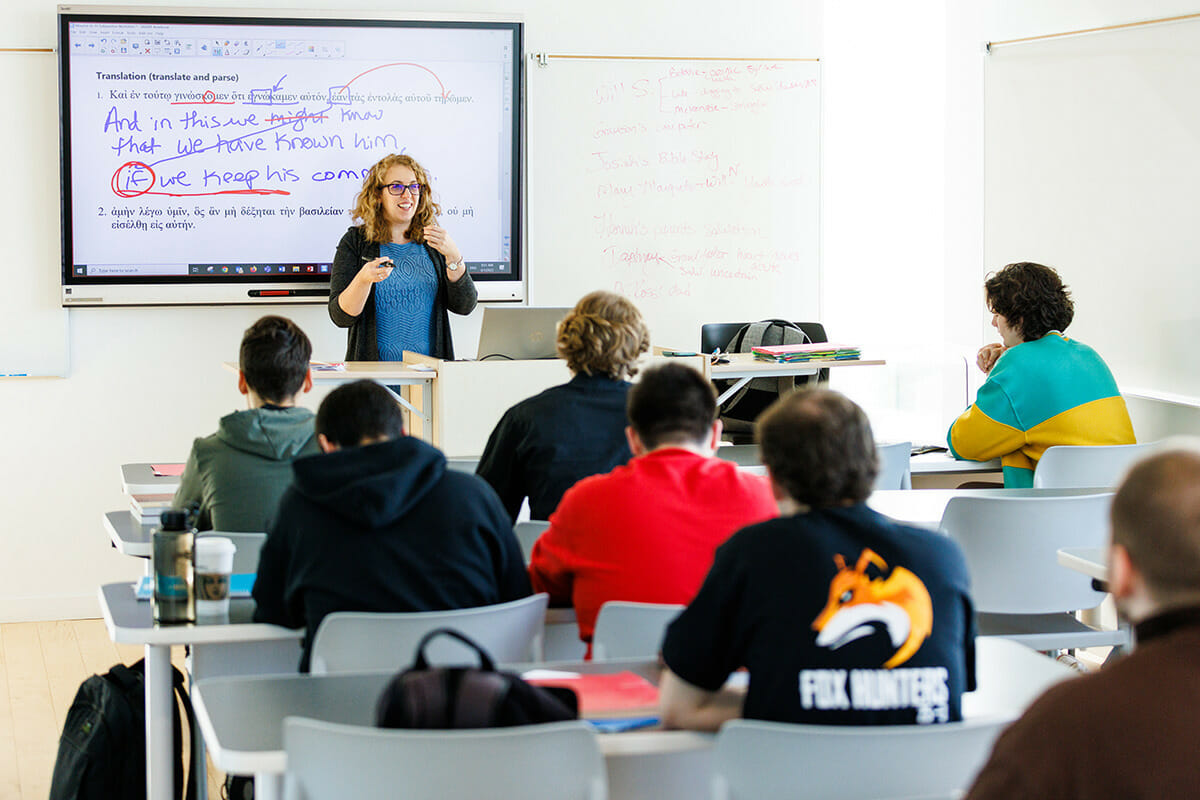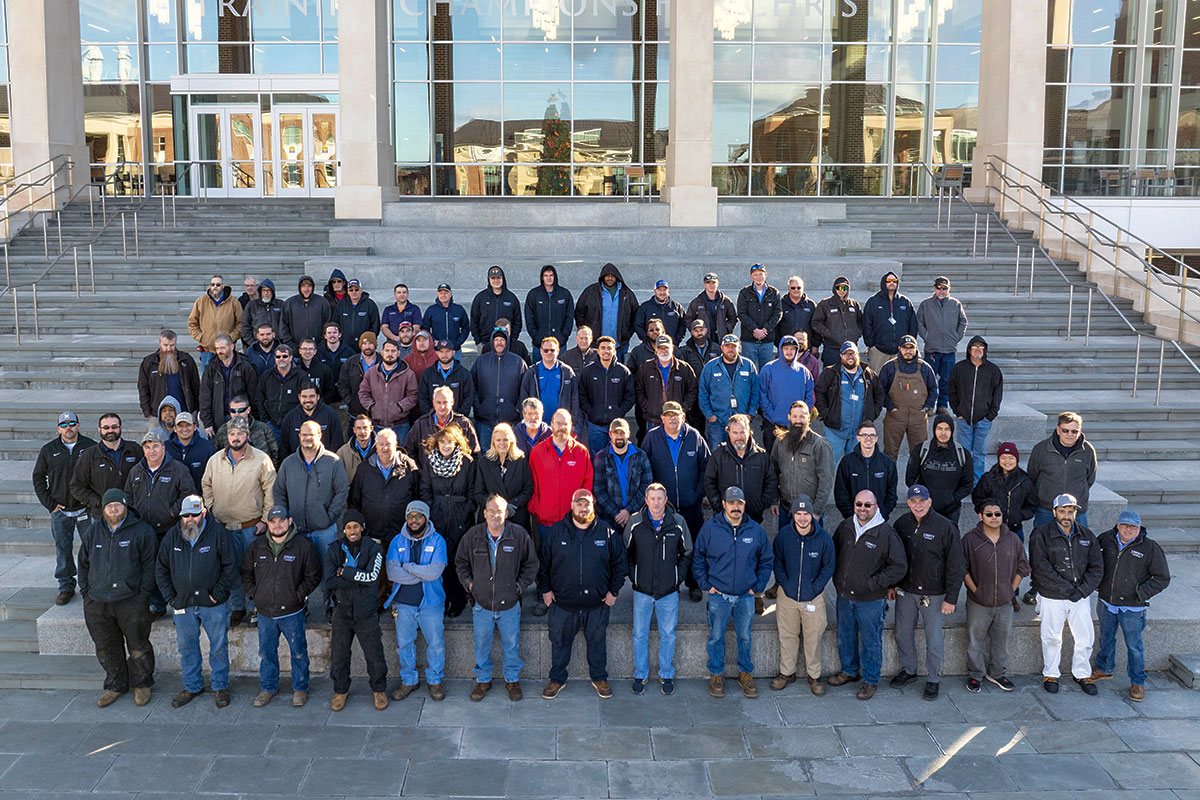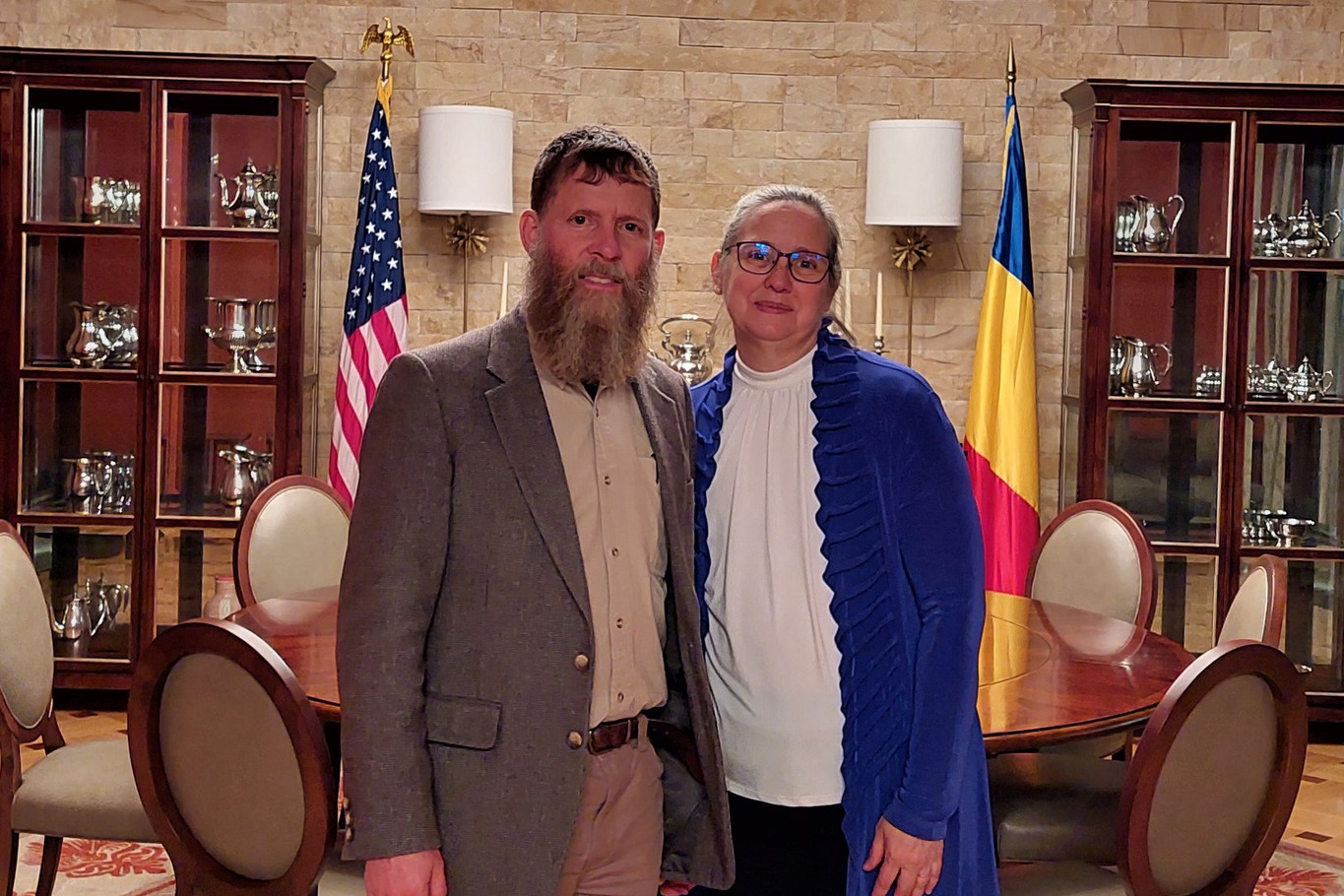School of Divinity professor shares her passion for the ancient words of the Bible
April 12, 2022 : By Jacob Couch - Office of Communications & Public Engagement

With an expertise in biblical languages, Dr. Jillian Ross, a professor in Liberty University’s John W. Rawlings School of Divinity, shows her students that biblical knowledge can become fuel for one’s faith.
“My passion is to teach students how to read the Bible in its original languages so they understand a biblical theology of language,” she said.
Ross began teaching at Liberty in 2016 and focuses on educating first-year Greek and Hebrew students while also teaching Aramaic and New Testament, among other courses. In 2017, she became the director of the School of Divinity’s Biblical Language Programs which includes the oversight of 15 programs both undergraduate and graduate.
Two of Ross’ primary areas of interest are the Old Testament books of Esther and Judges. She has been contracted, by Baker Academic and Eerdmans respectively, to release commentaries on both books in the coming years, detailing their biblical linguistic truths, some of which she said have been lost in modern interpretation.
Ross also had a piece published by The Oxford press’s Journal of Semitic Studies last month, “Revisiting the Hebrew Definite Article: A Reference Hierarchy Model,” which explains how the Hebrew language has four different meanings for the word “the” and does not use the indefinite article “a” as the English language does.
“I went through every occurrence of the word “the” in Judges and schematized them based off of the linguistic hierarchy,” she said.
 Ross and one of her colleagues then proposed some advancements, based on their findings.
Ross and one of her colleagues then proposed some advancements, based on their findings.
“Our major contribution was showing that the language does function (like English) when it has the ‘the’. It functions in all capacities, but it also pulls one of our ‘a’ usages into its ‘the’ that English uses,” she said.
She said that they found evidence that the Hebrew language skipped over one of the usages of ‘the’ found in other languages. After doing some research on some other languages in the Abraham and pre-Abraham time periods, and even from today, Ross confirmed this which will help scholars in their future Bible translation and commentary revisions.
Ross said it was close to 30 years ago that this specific research into the use of these words in the Hebrew language began in the Oxford Journal.
“I was very honored to be considered as someone who could continue this conversation in their journal,” she said.
Her deep dive into the linguistic intricacies of biblical languages has served to grow her passion for the Lord.
Ross chose to study the biblical languages because she enjoyed them and felt God wanted her to speak, write, and create Bible studies. During graduate school, Ross’ pastor and other leaders in the church encouraged her to continue her studies in biblical languages for vocational ministry.
“Reading the Bible in the original languages is exciting—something as a young person I wouldn’t have even dreamed of,” she said. “Seeing the Word in such clarity is very beautiful. You can see more of what is going on, and it forces you to slow down and ponder. I find the Hebrew poetry and narrative work particularly beautiful. That’s perhaps why at the end of first year Hebrew, I make sure we read and translate at least one Psalm.”
Even with much of her time spent in research and writing, Ross said it’s important to not let that keep her from living out the biblical truths she’s studying and continue to connect with people on a personal level.
“I try to train my students to take this concept of biblical languages, that a lot of people think is elite, and be very accessible, personable individuals so that people will approach you,” she said.
Developing relationships with students is a priority for Ross and her fellow School of Divinity faculty. They want students to understand that their professors are more than instructors; they are fellow Christians running the same race.
“They’re not only our students but also our friends,” she said, referencing how the Apostle Paul was friends with those who studied and learned under him, such as Mark and Timothy.
Ross earned her undergraduate degree in mathematics, but felt strongly that her call to ministry, which she had sensed since she was in high school, was still there. She received her M.Div. from Central Baptist Theological Seminary and taught as an adjunct at Trinity Evangelical Divinity School while receiving her Ph.D. Soon after, she was encouraged by a family member to apply to teach at Liberty. Now, years later, she is grateful that she did.
“I thoroughly enjoy the students and my colleagues,” she said. “I think the School of Divinity has an incredible group of colleagues who are very kind to one another, caring, and competent in their fields. I just enjoy the comradery. It’s a rich environment to grow in, and we have this iron-sharpening-iron connection with one another.”
Ross has also been encouraged by how intentional the school is about Training Champions for Christ.
“One of the School of Divinity’s strengths is we provide a conservative, Christian worldview where we love the Scripture and we love applying the Scripture to the church,” she said.
This foundation helps students remain grounded regardless of denomination.
“We’re Baptist leaning in our statement, so it helps students’ coherence,” she said. “If they are going into a Baptist denomination, they have that nice foundation to help the church. If not, they have still learned the principles and can think through how to have solid doctrine and solid conservative teaching. We seek to be very faithful to the Scripture, and we seek to have that in our content.”
While imploring students to be sound in doctrine, Ross and her colleagues make sure that they are there for them if they need to discuss classroom topics one-on-one.
“The faculty (here) are very accessible to the students, and you don’t get that at every institution,” she said. “We make time for the students, and we really see them as the next generation, and we count it a privilege to invest in them as future ministers.”


